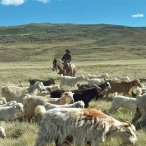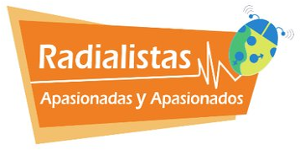During the interview he made reference to predominant pastoralist systems around the world and he highlighted the role of peoples associated to the movement in the provision of animal protein and ecosystemic balance in the different biomes.
In their website, Pastoramericas.org, they explain that this network is made up by civil society organizations and movements involved in extensive farming. The farmers are the ones in charge of acting and politically representing the organization in the media, and national and international fora. Farmers also rely on a set of technicians that support and strengthen the political representation discourse through an objective, but voluntary collaboration as activists. The commitment of the people involved in the network is their main asset.
The goal of the network is to cover all main pastoral farming systems in Latin America, featured mainly by environmental conditions and management patterns derived from them.
Frére highlighted an informal self-sustenance and commerce economy associated to pastoralism, which is not always made visible in terms of its contribution to the gross domestic product of one country or the other.
According to the Food and Agriculture Organization of the United Nations -FAO- "the voice of pastoralists is fundamental for achieving fair and sustainable development of pastoralist communities. The Pastoralist Knowledge Hub integrates pastoralists by offering a tool for establishing a participation mechanism. The mechanism brings representatives of pastoral networks together to discuss the views of pastoral communities on certain topics that are being discussed at international level".
Pastoralists actively participate in the Committee on World Food Security of the FAO.
Nomadic or pastoral cattle farming is as well a key issue for the sustainability and complementarity of the family or peasant productive unity, said Pablo in the interview conducted in Derio, Basque Country, in the framework of the 7th International Conference of La Vía Campesina.
Agroecology magazine Lisa stated in its December 2016 issue with reference to the Latin American context related to the pastoralist production system that the "existence or prevalence of pastoral societies is not that evident, as is the case of peasant family farming, in whose context the relationship between communities and their cattle farming is an essential condition to their sustainability, due to its contribution to the biodiversity of the ecosystem, especially pasturelands, and as an essential resource for life and production for being a source of protein for food and fiber for textile use, both in the case of crafts and the industry sector".
Imagen: www.pastoramericas.org
Radio Mundo Real: www.radiomundoreal.fm











